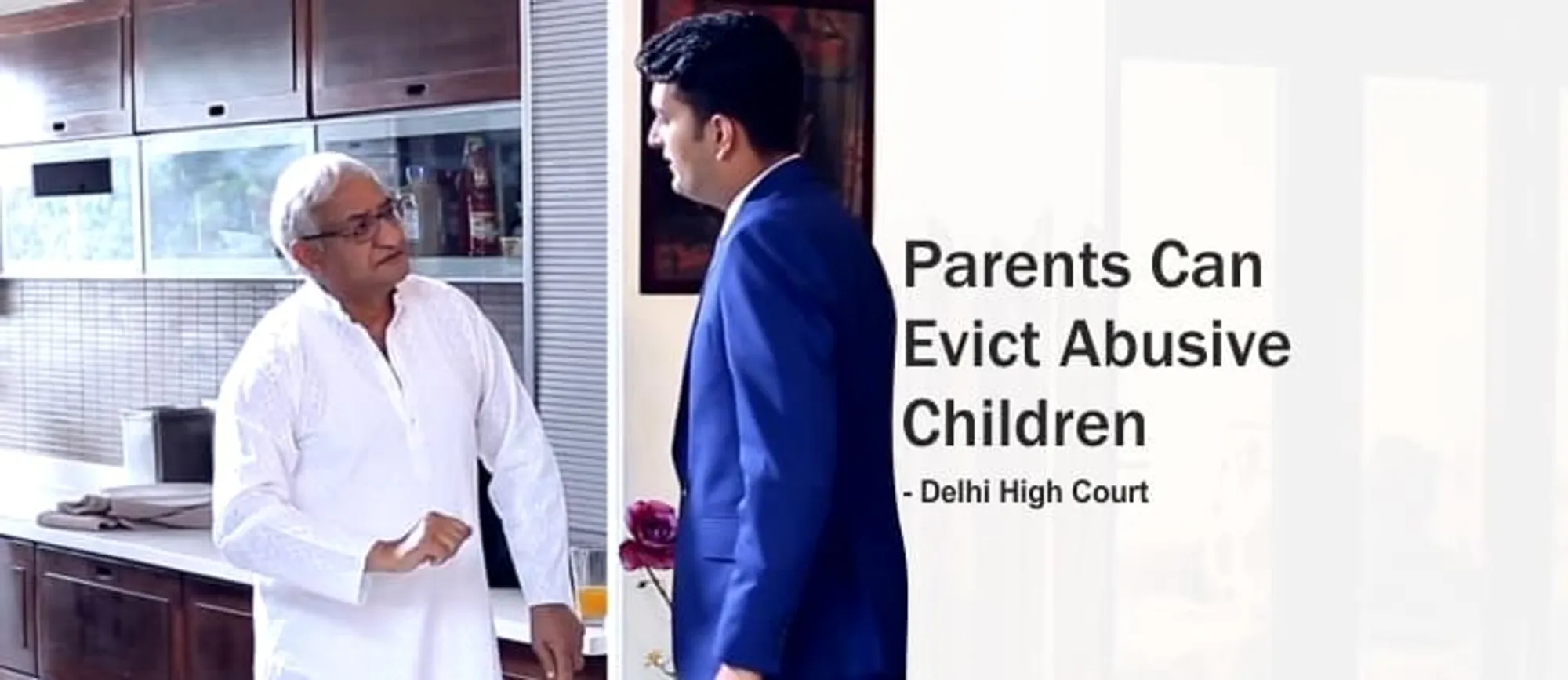We have had a rich culture in India since ancient times where parents are looked after by their children when they grow old. Our moral values teach us that parents need our love, care, respect and protection in their old age not only because they are our parents who looked after us in our tender age, but because they need us the most at that age.
With the growing complexities of working culture and modern social setup where joint families are giving way to nuclear families, the need was felt for State to interfere and make provisions for providing physical and financial support to the elderly by the children. Thus the Maintenance and Welfare of Parents & Senior Citizens Act, 2007 was enacted. This Act aims to provide a speedy, inexpensive and simple procedure to claim maintenance. Under the 2007 Act, it has been left to the State Governments to frame rules for the protection of senior citizens.
In the Delhi High Court Judgement in a case titled Sunny Paul vs State of NCT of Delhi, it has been made clear that under the scheme of the 2007 Act, the main objective is to provide social justice to the elderly.
A. EVICTION CAN BE CLAIMED from abusive children
- With or without claiming maintenance
- From any property – ancestral, self-acquired or rented accommodation. Property can be tangible/intangible, moveable or immovable. The property includes any right or interest in the immovable property and not just ownership.
- Even if children are not in line to inherit the property
B. MAINTENANCE CAN BE CLAIMED
- It is now obligatory for the children/grandchildren to provide maintenance in the form of monthly allowance to the parents if they are unable to maintain themselves out of their own earnings.
C. OBLIGATORY TO PROVIDE BASIC AMENITIES
- U/ s 23 of the Act, transfer of property from senior citizen will be void if the transfer was on the condition that the transferee shall maintain the transferor and provide for basic amenities and physical needs, but he fails to do so. Transfer can be actual transfer, stay or possession. The transferee can be legal heirs or children.
D. OTHER OBSERVATIONS
- Everyone including the senior citizens has the right to live peacefully
- The primary objective of the Act is to protect the life and property of the Senior Citizens
- The Court also emphasised that the Act is social legislation and needs a liberal interpretation to respond to the urgent social needs of a welfare State. The Legislation intends to provide an effective remedy to the parents to save them from being traumatised.
E. POWER OF MAINTENANCE TRIBUNAL
- The Court upheld the power of the Maintenance Tribunal to order the eviction of abusive children under the Act and to issue directions to give effect to the same.
- Earlier also in another case of Rajeev Bahl, Delhi High Court has stated that even if the property is HUF and children are coparceners, they can be evicted if they are harassing/ill-treating the parents.
The children cannot continue to misbehave with elderly parents and enjoy their property also. The moral obligation to maintain the parents has now come under the purview of the State, and the same is being enforced in the true spirit and light by various Courts. If the children are not fulfilling their obligation, they can be forced to do the same, and if they are maltreating their parents, they can be evicted from the property.

